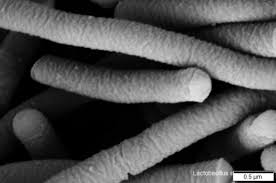
Did you know that we have more bacteria in and on us than we have cells in our body? Only recently have we begun to understand bacteria’s impact on the body, and the effect that they have on our health. Scientists estimate that there are over 100 trillion different bugs that can live in our gut. Many of these bugs within us are yet to be identified by science. From mood to digestion to autoimmune diseases, research shows connections between these bugs within us and our health. I often joke with patients that if I was on a desert island and could only have one supplement, I would want it to be a probiotic.
Bacteria’s impact on the body
Our initial exposure to bacteria comes with birth, through the vaginal canal. The bugs then find their home within us and on us. I would call this a symbiotic relationship; they help us and we give them a home.
We know that certain nutrients cannot be absorbed without bacteria in our large intestine. For starters, bacteria have a role in vitamin B12 and vitamin K, as well as building our immune system and fighting off infections. The populations of bacteria also change with diet, medications, toxic exposure and antibiotics.
The weed in the garden
While bacteria’s impact on the body includes health benefits, they can cause issues at times as well. An easy example is food poisoning. I often refer to this as a weed in the garden. The weed comes in and kills off all of the flowers. You then have to nurture the soil, providing the right fertilizer and bug killers, to get the garden back in balance. The balance of weeds and flowers is also affected by diet and lifestyle. There are tests to look at the balance of weeds and flowers in your gut, which can help with the individual treatment of the garden. For some, garden maintenance is as simple as adding probiotic foods to your diet. For others, treatment can last months, as the garden may have been ignored and allowed to overgrow.
What do you do to keep your garden in balance?
